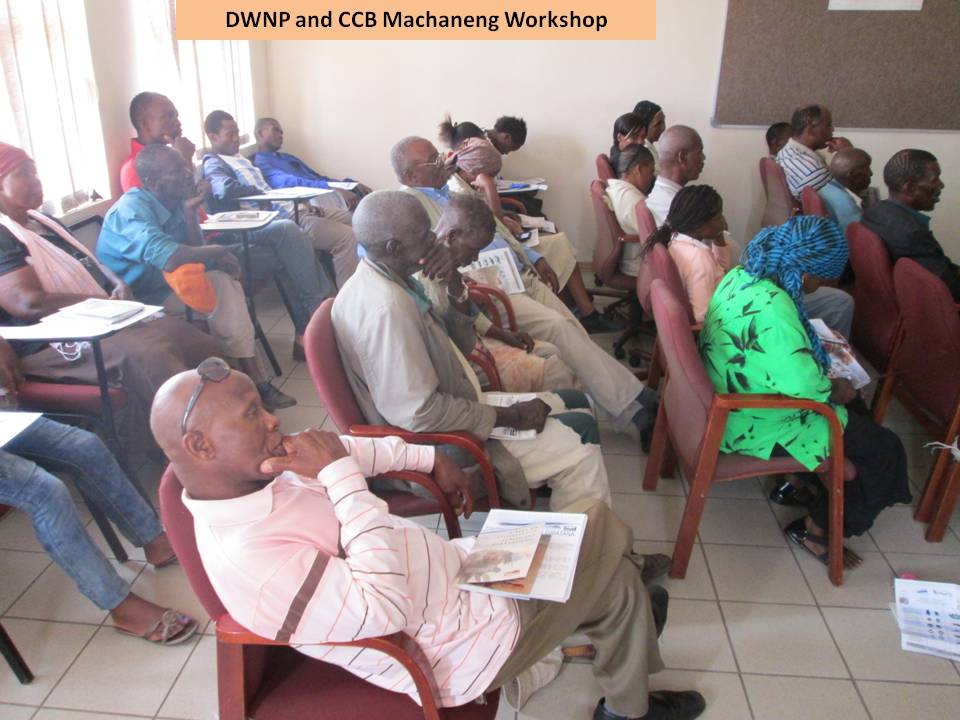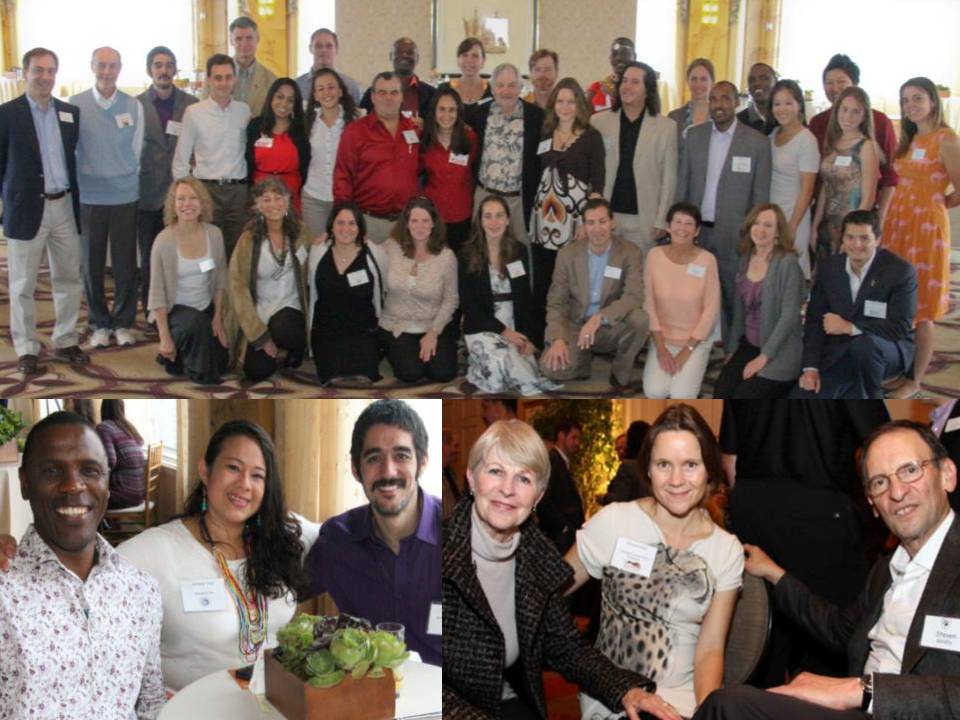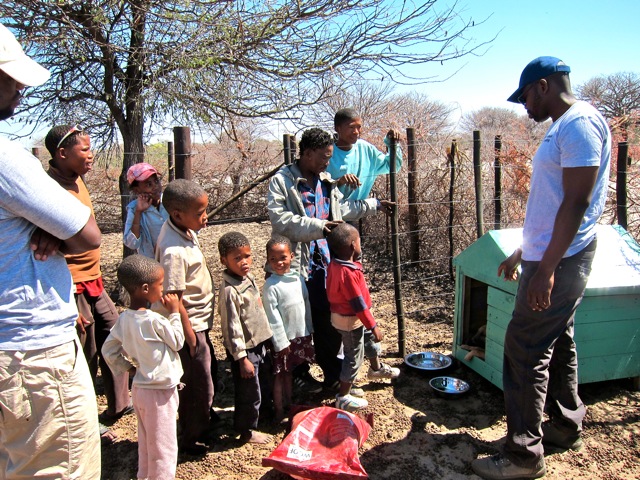Then there was a tragedy in Machaneng where a number of small stock was destroyed by an unknown predator, thought to be cheetahs. DWNP appealed to CCB to intervene and a workshop was organized for the farmers to sensitize them and to investigate with their help what this predator could be. An open discussion led the participants to a conclusion that the predator responsible was a caracal given all the facts. Methods to reduce losses to caracals were suggested and discussed and the farmers were very pleased with the information and intervention made by CCB in its partnership with DWNP. Everyone agreed to commit themselves to more effort towards ensuring that no more livestock be killed following the intervention.
|
The Community Outreach department made the month of October a super busy month and hosted a number of workshops in various areas in the country. First it was a mini market day in Kokong, Mabutsane District on the 24th of October 2012. The purpose of the event was to bring together all the community service providers in the district to address the community on the ways in which they can improve their lives using the existing services of various organizations in their region. Various government and non-government organizations including CCB attended this activity. CCB then moved on to facilitate at the training of small stock farmers in Ramatlabama Agricultural Centre. The training was organized by the Department of Animal Production (DAP) under the small stock section where CCB trained 18 farmers on the correct identification of livestock loss, preventing losses, the training and care of livestock guarding dogs.
Then there was a tragedy in Machaneng where a number of small stock was destroyed by an unknown predator, thought to be cheetahs. DWNP appealed to CCB to intervene and a workshop was organized for the farmers to sensitize them and to investigate with their help what this predator could be. An open discussion led the participants to a conclusion that the predator responsible was a caracal given all the facts. Methods to reduce losses to caracals were suggested and discussed and the farmers were very pleased with the information and intervention made by CCB in its partnership with DWNP. Everyone agreed to commit themselves to more effort towards ensuring that no more livestock be killed following the intervention.
0 Comments
Rebecca and Douglas attended the 2012 WCN Expo in San Francisco between 9th and 14th of October. WCN works to protect endangered species and preserve their natural habitats by supporting 13 entrepreneurial conservationists who pursue innovative strategies for people and wildlife to co-exist and thrive. Cheetah Conservation Botswana is lucky enough to be one of their partners! The week long events includes workshops on strategic planning, fundraising, marketing, conservation innovation and more. Followed by a weekend of public and private awareness raising events. This year the Expo continued to be a great success and provide wonderful opportunities for supporters and conservationists to come together.
Rebecca then travelled on to make presentations at National Geographic in Washington D.C. and meet the Crittercam team to discuss future plans. Thankyou so much to everyone who provided travel support, accomodation and friendship throughout the journey and best wishes to all of the new friends and supporters of Cheetah Conservation Botswana! The conflict mitigation study with the Kacgae community has been going well as anticipated. After building the kraals some the farmers were ready to have Livestock Guarding Dog puppies. After keeping them for a month in the demo farm we decided that they are ready to start work with their own herds. We took them to Kacgae and each farmer who received one signed an agreement form which outlined the care of a livestock guarding dog (LSGD). Furthermore, once given to the farmers, the puppies were to remain in the kraal for further two weeks to bond with their own herds. This was to make sure that the puppy gets accustomed to its own goats before been allowed to go out with the kids! After the first week reports are that the puppies are already adamant to go out with the goats as they were digging holes to try and escape and follow their herd to start work, zealous little puppies! Two weeks after their placement we went on to Kacgae for monitoring, only one puppy lost its herd in the evening when they mixed with another herd. However, with the help of the villagers it was recognised as one the new LSGD's and the puppy was returned. Overall, the puppies are doing so far and are in good health. We have since got another set of five Tswana breed dogs in our demo farm that are yet awaiting to be placed in two weeks. The care of a LSGD is vital especially at young age, they need more supplement for strong bones. Therefore as working dogs, every month the dogs are given pellet dog food and visited for monitoring every fortnight. The supply of dog food will go on for a year after which it is believed that farmers will be in a position to take care of their own dogs.
|
SearchArchives
May 2024
Categories |




 RSS Feed
RSS Feed
